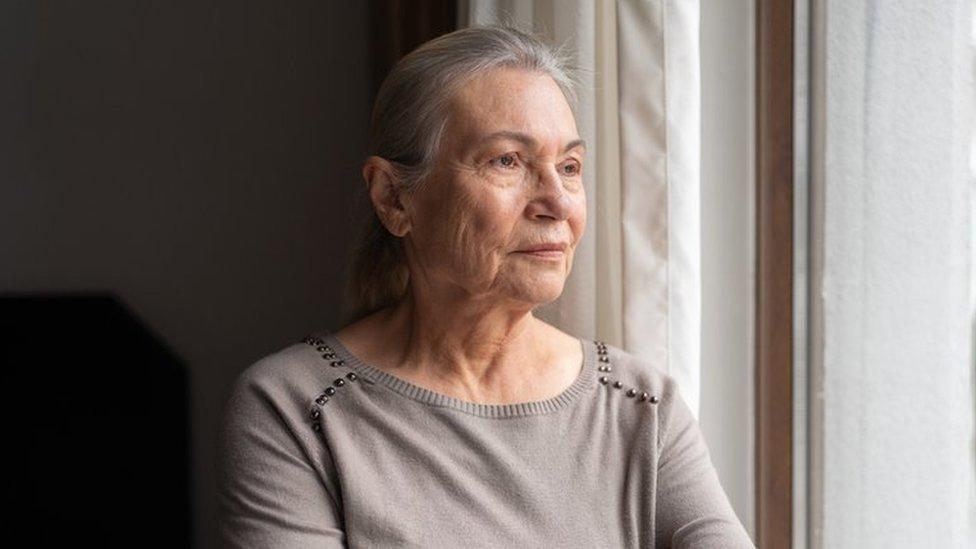Mavis Eccleston: 'Mercy killing' trial 'in public interest'
- Published
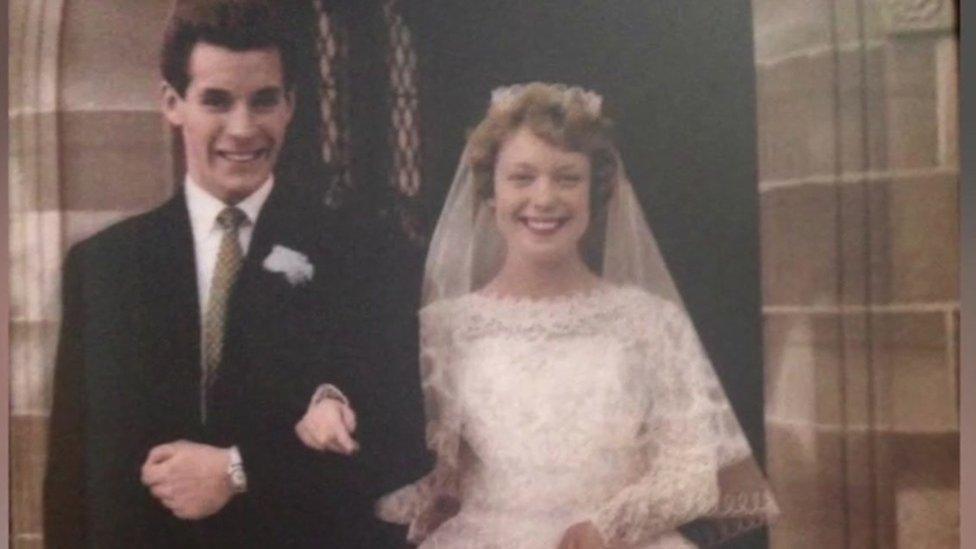
Mavis and Dennis Eccleston had been married for almost 60 years
The Crown Prosecution Service (CPS) has said it was right to make an 80-year-old woman face a murder trial over the death of her terminally-ill husband.
A jury cleared Mavis Eccleston of murder and manslaughter on Wednesday.
She told the court that in accordance with the wishes of husband Dennis, 81, she had fetched him medicine on which he could overdose.
The CPS said it was in the public interest to prosecute after examination of the evidence.
Wednesday's verdicts have reopened the debate over the law and so-called "mercy killings", with Mrs Eccleston's family maintaining the trial illustrates the need for a rethink over assisted dying, which is illegal in the UK.
Assisted dying is a means by which terminally-ill people would be allowed a choice over the manner and timing of their death, with the support of a third party.
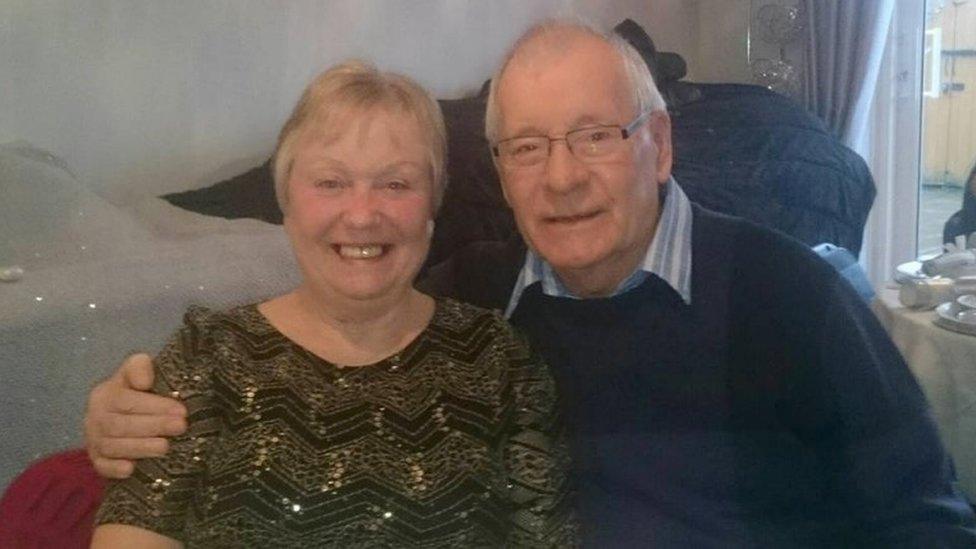
Mavis and Dennis Eccleston were found unconscious by family members in February 2018
The CPS said while it recognised the "events" were distressing for the family, the circumstances meant it had a duty to act.
It said: "There was sufficient evidence to provide a realistic prospect of conviction for the offences of murder and manslaughter and it was in the public interest to prosecute.
"The decision to prosecute in this case was taken only after detailed and careful examination of all of the available evidence, including statements from family members and expert witnesses."
In court, the prosecution had alleged Mrs Eccleston gave her cancer patient husband an overdose of prescription medicine without his knowledge.
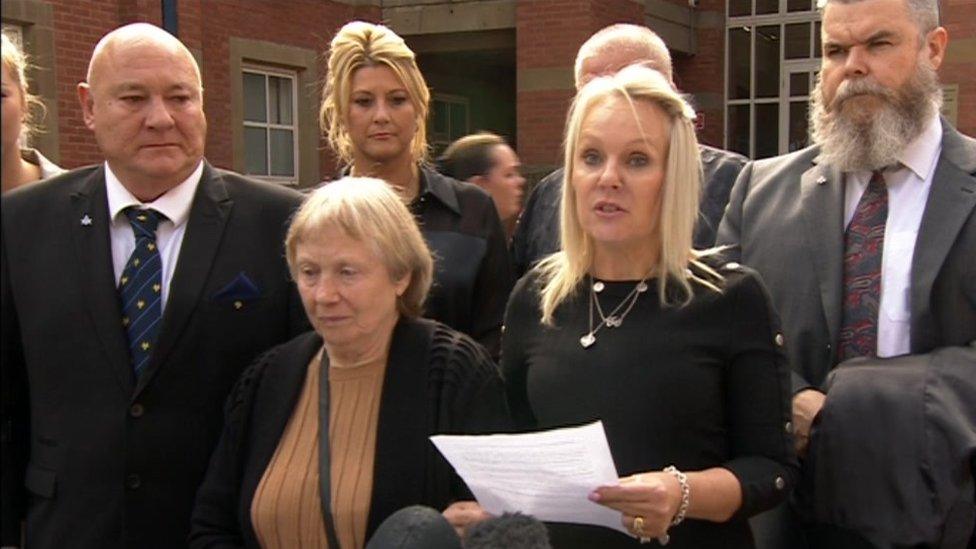
Mavis Eccleston's daughter said her father had been suffering "intense physical pain"
Speaking on Wednesday, Mrs Eccleston's daughter Joy Munns said her father had been too ill to travel to Switzerland where assisted dying is permitted.
"Our mum did not wish to live without him, her husband, the love of her life, and so she took an overdose together with him," Ms Munns said.
"Our dad would have been devastated at the thought of his beloved wife waiting to find out if, at the age of 80, she would face a life sentence in prison simply for respecting his wishes."
After their overdose in February last year, the pair were found unconscious at their bungalow in Huntington, near Cannock, Staffordshire. They were rushed to hospital where Mrs Eccleston recovered.
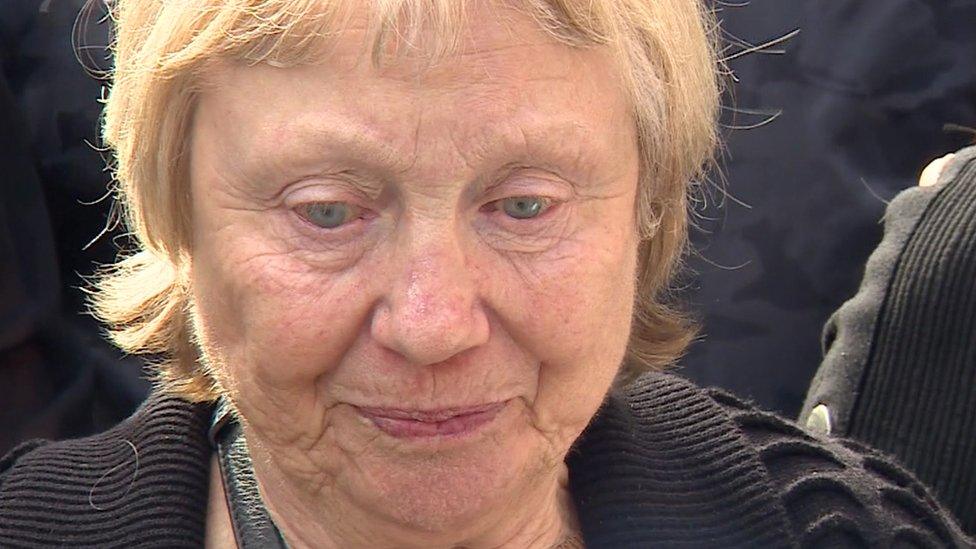
Mrs Eccleston recovered from her overdose after hospital treatment
Campaign group Care Not Killing said while the "troubling" case should "never have seen the inside of a court room", it did not warrant a change in law.
A spokesperson said: "[It is] sad to see [the case] being used to try and justify a campaign to rip up long-held universal protections by treating those who are terminally ill, disabled, or have chronic conditions differently in law."
Dignity in Dying, a campaign group calling for a law allowing assisted dying, said Mr Eccleston felt his only option was to end his own life, and his wife should never have been put in the position in which her actions left her.

Follow BBC West Midlands on Facebook, external, on Twitter, external, and sign up for local news updates direct to your phone, external.
- Published18 September 2019

